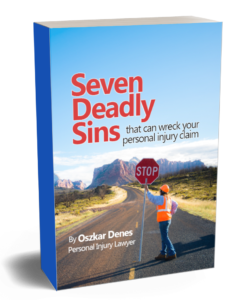A disc bulge injury often happens at work when the employer’s workplace is unsafe. Many workers are forced to lift heavy objects repetitively, or in an awkward position. For example, we have had clients who suffered a disc bulge when they were required to restock items under time pressure. Many people just assume that a disc bulge is a normal consequence of ageing, whereas very often it is actually caused by a negligent employer.
In minor cases, once the initial inflammation settles, the injury is treated by a physiotherapist. More severe cases may require medications, epidural injections or even spinal surgery to repair some herniated discs.
While treatment for back pain is funded by Medicare, there may be a waiting list (especially for some surgeries). It is possible to speed up the process if you have private health insurance. Alternatively, if you have a workers’ compensation claim on foot then usually WorkCover Queensland would fund the necessary treatment.
In many cases, people who suffer from back pain are unable to work for a period of time or even if they are able to work, they may not be able to work as much as they used to. If you are unable to work, it is important to check if you can draw funds from your superannuation or through an income protection insurance policy. (We can help with this.) Keep in mind, your employer may have organised an insurance protection policy for your benefit, and so it is worth making those enquiries. We can assist arm with all of these issues.
How much compensation can I get?
The reality is, no two cases are identical. Generally, 12 to 18 months pass between the injury and settlement, although in serious cases, it can take longer. This is quite a useful period because we can determine what the medical bills add up to, whether there are any future medical expenses, and if there is ongoing permanent disability. Determining the value of the case is a complex process and we use this time period to obtain evidence (medical and/or forensic evidence) about the injuries and their long-term impact.
That said, the typical measures of the value of the case are these categories: general damages (or pain and suffering) past and future medical and other expenses, past and future income loss, the value of services received for free (for example care received from family members), interest and costs.
General damages (aka pain and suffering)
The amount of compensation you can receive as general damages depends on the nature and severity of your injuries and the extent of your pain and suffering. In many cases, the compensation amount is fixed by legislation. In some other cases, the court has broad discretion.
Where general damages is capped by legislation, experts will rate the severity of your injuries on a scale of 1 to 100. For example, a moderate spinal injury may be rated 5 to 15. The applicable general damages award is between $7,200 and $25,800.
If there is no cap, then the court can award you more for general damages.
How do you know if there is a cap in your case? We advise about this once we have investigated your claim. If we find that more than one company may be liable to pay you compensation (which often happens on construction sites) then chances are your claim is not capped.
Past and future medical expenses
Past medical expenses refers to expenses which you incur between the date of the injury and the date of settlement or judgement. Think of X-Rays, MRI scans, GP visits etc. To ensure that you receive compensation for all expenses incurred, it is important to keep receipts.
In addition to medical expenses, you can also recover travel expenses, and in some cases other other things as well such as accommodation costs.
Future expenses are those which you will incur after the date of settlement or judgement. These expenses are based on estimates provided by medical and other experts. The estimates take into account any need for further surgery, likely medication expenses, likely further travel expenses, any special equipment (think of reclining chairs, special shoes etc).
Loss of earnings (also future earnings)
You can be compensated for earnings you lose because you are not able to work due to your injuries.
Past earnings loss (loss between the date of injury and settlement or judgement) is generally proven based on tax returns and other financial documents.
Compensation for future economic loss (loss you incur up to retirement age) depends on your age, your residual earning capacity, but other factors may also be taken into account. Please note: we can recover lump sum compensation now for losses you might incur in the future.
It’s important to realise you are also entitled to be compensated for superannuation contributions which you would have received but for your injuries.
The value of services received for free from family
You are generally entitled to be compensated for the value of services received for free, such as care received from family members. Again, you are entitled to compensation for services received between the injury and settlement or judgement, as well as the value of future services. However, there are some legislative thresholds which may apply to your case and which may limit your entitlements. We can advise further during the initial interview.

